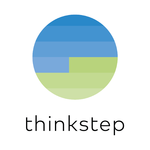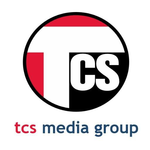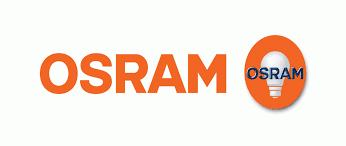Description

thinkstep SoFi

UrjaNet
Comprehensive Overview: thinkstep SoFi vs UrjaNet
Thinkstep SoFi and UrjaNet are two distinct platforms catering to different aspects of data management and analytics. Here's a comprehensive overview of each:
Thinkstep SoFi
a) Primary Functions and Target Markets
- Primary Functions: Thinkstep SoFi primarily caters to sustainability performance management. It provides tools for companies to measure, analyze, and report on their sustainability metrics. This includes carbon footprint analysis, energy consumption, and compliance reporting.
- Target Markets: The target markets for Thinkstep SoFi are medium to large enterprises across various industries, particularly those with significant environmental impacts, such as manufacturing, energy, and utilities. It is also used by organizations that are required to comply with stringent environmental regulations or those seeking to optimize their sustainability strategies.
b) Market Share and User Base
- Thinkstep (now part of Sphera) is known for its extensive experience in sustainability solutions, which gives SoFi a solid reputation in its niche market. While specific market share numbers can fluctuate with industry developments, SoFi holds a significant presence within the specialized sustainability management sector. Its user base comprises well-known corporations that prioritize sustainability in their operations.
c) Key Differentiating Factors
- Comprehensive Sustainability Focus: SoFi is specifically tailored to sustainability and environmental data management, offering robust analytical tools and extensive reporting capabilities closely aligned with this domain.
- Integration Capabilities: It integrates well with other data sources and systems, allowing for seamless data management processes.
- Expertise and Longevity: With a long-standing history in sustainability consulting, Thinkstep brings an expert perspective, providing value through both the software and associated advisory services.
UrjaNet
a) Primary Functions and Target Markets
- Primary Functions: UrjaNet specializes in utility data aggregation and management. It provides automated access to utility data, including energy usage, billing information, and rate analysis, primarily for energy and financial service sectors.
- Target Markets: Markets served by UrjaNet include utility companies, energy service providers, financial institutions, and businesses with significant energy consumption. It is particularly beneficial for companies involved in energy management, auditing, and financial services that require detailed and accurate utility data.
b) Market Share and User Base
- UrjaNet serves a critical and growing niche in energy data management, benefitting from the increasing demand for precise utility data in financial and energy sectors. Its market share is noteworthy among companies prioritizing utility optimization and energy analytics. The user base includes enterprises that require detailed utility consumption data to optimize their operational efficiency and financial analyses.
c) Key Differentiating Factors
- Utility Data Specialization: UrjaNet offers specialized services in fetching and managing utility data, which is not the central focus of general sustainability platforms.
- Automation and Precision: The platform is designed for automated, real-time access to utility data, which distinguishes it from broader data management tools that might require manual input or less frequent updates.
- Financial Integration: Its strong emphasis on utility billing data makes it particularly useful for financial applications, aiding in budgeting and forecasting processes.
Comparative Overview
- Both platforms serve distinct niches within the broader spectrum of data management and analytics.
- Thinkstep SoFi is geared towards sustainability performance, with a strong emphasis on environmental metrics, while UrjaNet focuses on utility data, with applications in energy management and financial analysis.
- Market penetration and user base sizes may differ due to their specialized offerings, with each excelling in its respective domain and sector-specific needs.
Ultimately, organizations choose between these platforms based on their specific requirements—whether they are driven by sustainability goals or the need for detailed utility data management.
Contact Info

Year founded :
Not Available
Not Available
Not Available
Not Available
Not Available

Year founded :
2010
+1 678-439-8752
Not Available
United States
http://www.linkedin.com/company/urjanet-inc
Feature Similarity Breakdown: thinkstep SoFi, UrjaNet
As of my knowledge cutoff in October 2023, thinkstep's SoFi and UrjaNet are distinct platforms with specific focuses, yet they share some core functionalities, particularly regarding sustainability and data management. Below is a feature similarity breakdown of the two:
a) Core Features in Common
-
Data Management and Integration:
- Both platforms offer capabilities to handle large volumes of data, integrating multiple data sources to streamline data collection processes.
-
Analytics and Reporting:
- They provide analytical tools and reporting functionalities to help users make sense of the data collected. This includes generating insights from energy consumption data, carbon emissions, and other sustainability metrics.
-
Regulatory Compliance:
- Each platform supports compliance with relevant regulatory standards, helping organizations meet their sustainability and reporting obligations.
-
Sustainability and Energy Management:
- Both aim to improve resource efficiency and reduce environmental impact through effective energy and sustainability data management.
b) User Interface Comparisons
- thinkstep SoFi:
- Known for a highly customizable dashboard that can be tailored to different user roles and industry needs. The interface is often praised for its intuitive design, enabling users to easily navigate complex datasets.
- UrjaNet:
- Typically provides a more standardized interface that focuses on ease of use and accessibility, emphasizing the quick retrieval and organization of utility data. The platform is designed for straightforward navigation with simple data visualization tools.
The main difference tends to be in the level of customization and complexity, with thinkstep SoFi often being more robust and customizable compared to the potentially more streamlined interface of UrjaNet.
c) Unique Features
-
thinkstep SoFi:
- Lifecycle Assessment (LCA): SoFi offers detailed LCA tools for evaluating the environmental impacts of products and processes throughout their lifecycle, which is especially beneficial for manufacturing and production industries.
- Advanced Metrics Tracking: The software provides advanced tracking of diverse sustainability metrics that can be individually customized.
-
UrjaNet:
- Utility Bill Automation: UrjaNet specializes in automating utility bill data collection, providing users with immediate, streamlined access to utility data without manual entry.
- Focus on Utility Data: Its strongest feature is its niche focus on utility data, making it ideal for organizations with extensive energy billing needs, providing detailed energy usage analysis.
Each platform has strengths that serve different organizational needs based on their focus areas. thinkstep SoFi is strong in comprehensive sustainability performance management, while UrjaNet excels in utility data automation and management.
Features

Not Available

Not Available
Best Fit Use Cases: thinkstep SoFi, UrjaNet
thinkstep SoFi
a) Best Fit Use Cases for thinkstep SoFi:
-
Sustainability Management: thinkstep SoFi focuses on sustainability performance management. It is ideal for businesses committed to sustainability goals, such as reducing carbon footprints, managing energy consumption, and embedding sustainability into their operations.
-
Corporate Social Responsibility (CSR): Companies with strong CSR agendas can leverage thinkstep SoFi to track and report on a wide range of CSR metrics and initiatives.
-
Environmental, Social, and Governance (ESG) Reporting: Enterprises needing robust ESG reporting tools benefit from the software’s comprehensive data management and reporting capabilities.
-
Manufacturing and Industrial Sectors: Companies in sectors that are heavily regulated in terms of environmental impact, such as manufacturing, energy, and utilities, would find thinkstep SoFi beneficial in managing compliance and optimizing processes for better sustainability outcomes.
-
Large Enterprises and MNCs: Suitable for large organizations that have extensive operational footprints and need to manage and report sustainability performance across multiple sites and countries.
d) Industry Verticals and Company Sizes:
-
Industry Verticals: Primarily focuses on large environmental impact sectors like energy, manufacturing, and heavy industries. However, it also caters to sectors like retail and hospitality that are increasingly focused on sustainability.
-
Company Sizes: While thinkstep SoFi can be used by smaller businesses, it is best suited for large, multinational corporations due to its comprehensive features and ability to handle large datasets and complex reporting requirements.
UrjaNet
b) Best Fit Use Cases for UrjaNet:
-
Energy Data Acquisition: UrjaNet specializes in providing utility data solutions, making it ideal for businesses that require comprehensive access to utility and energy consumption data for billing, analysis, and optimization.
-
Energy-Intensive Industries: Businesses in energy-intensive industries can use UrjaNet to gain insights into their energy usage, enabling effective demand response strategies and optimization of energy procurement.
-
Real Estate and Property Management: Companies managing multiple properties can use UrjaNet for streamlined utility data management and to enhance energy efficiency across their portfolios.
-
Energy Management Service Providers: Firms providing energy management and consultancy services can use UrjaNet to access clients' utility data efficiently, allowing them to offer more accurate and data-driven insights.
-
Utility Billing and Payment Solutions: Useful for companies developing solutions around utility billing and payments, offering them the foundational data required for accurate billing and analytics.
d) Industry Verticals and Company Sizes:
-
Industry Verticals: Suitable across various sectors such as real estate, manufacturing, energy services companies, and any organization requiring detailed utility data for strategic decision-making.
-
Company Sizes: Serves a wide range—from small to medium enterprises (SMEs) looking to reduce energy costs, to large corporates needing to consolidate and analyze energy data for numerous sites.
In summary, thinkstep SoFi is tailored for companies focusing on comprehensive sustainability and reporting solutions, predominantly within large, high-impact industries. In contrast, UrjaNet handles utility data acquisition and management, appealing to industries needing detailed energy consumption analysis and optimization capabilities, without restriction on company size.
Pricing

Pricing Not Available

Pricing Not Available
Metrics History
Metrics History
Comparing teamSize across companies
Conclusion & Final Verdict: thinkstep SoFi vs UrjaNet
To provide a comprehensive conclusion and verdict on thinkstep SoFi and UrjaNet, it's important to evaluate both products based on their core functionalities, strengths, weaknesses, and the specific needs of the users. Here's an evaluation that includes a recommendation:
a) Best Overall Value
Considering all factors, including cost, ease of use, functionality, and customer support, the product offering the best overall value is likely to be subjective and depend on the specific needs of the user.
-
thinkstep SoFi might be the better choice for companies heavily focused on sustainability, environmental compliance, and detailed analytics. If a robust environmental management system is a priority, SoFi's comprehensive features in sustainability performance management provide significant value.
-
UrjaNet could offer better value for organizations primarily concerned with energy usage data, billing accuracy, and efficiency. Its strength lies in its automated utility data aggregation and simple integration with financial and energy management systems.
b) Pros and Cons
Thinkstep SoFi:
-
Pros:
- Comprehensive sustainability performance management.
- Advanced analytics and reporting capabilities.
- Suitable for organizations focused on environmental compliance and sustainable practices.
- Strong framework for managing diverse sustainability metrics.
-
Cons:
- Potentially higher costs associated with its broad range of features.
- Learning curve for users unfamiliar with advanced sustainability metrics.
UrjaNet:
-
Pros:
- Efficient utility data aggregation and automation.
- Easy integration with various financial and energy management platforms.
- Cost-effective for businesses primarily focusing on energy usage and billing.
- Simplifies utility data collection and management.
-
Cons:
- Limited scope if broader sustainability metrics are required.
- Depending on the feature set, may lack depth in sustainability reporting as compared to Thinkstep SoFi.
c) Recommendations
For potential users deciding between thinkstep SoFi and UrjaNet:
-
Assess Your Needs: Identify whether your priority is comprehensive sustainability management or focused energy data gathering and analysis. SoFi is more suitable for the former, while UrjaNet excels in the latter.
-
Budget Considerations: Analyze the costs associated with each solution and weigh them against their benefits. SoFi may have a higher upfront cost but offers a wider range of features, while UrjaNet may be more cost-effective if you need less comprehensive functionality.
-
Scalability and Integration: Evaluate how each system will integrate with your current tech stack and whether they can scale with your organization's growth. UrjaNet’s strength in integration could be a determining factor if seamless data flow is crucial.
-
Trial and Demonstrations: Wherever possible, engage with demo versions or trial periods to understand the user interface and ease of use. This can provide insights into which product aligns best with your team's capability.
Ultimately, the best choice will depend on your organization's specific goals, the complexity, and the functionalities you need. Consider the outlined factors and align your choice with long-term strategic objectives to ensure you select the product that provides the greatest overall value.
Add to compare
Add similar companies




